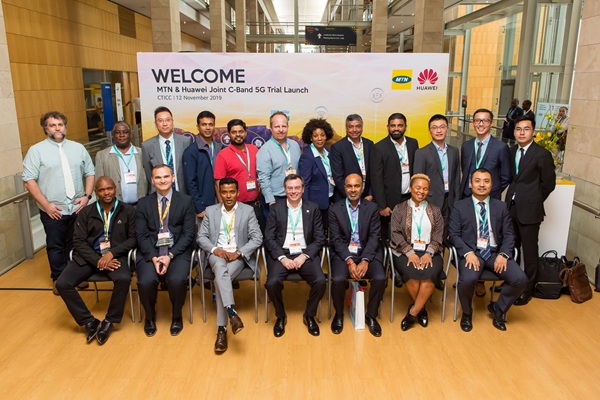
South African mobile operator MTN, together with Huawei have launched their C-band 5G trial, as part of the operator’s network evolution plan towards 5G.
C-band, the so-called ‘golden band’ for 5G spectrum, is said to be a valuable slice of the spectrum and comprises of a frequency range of around 3.3 – 3.8GHz.
MTN and Huawei signed a memorandum of understanding to establish a Joint 5G Innovation Program to assess and work on new technologies such as 5G and Artificial Intelligence (AI). Through these innovations, MTN SA hopes to develop use cases that have a social impact, including smart city and education driven by 5G and AI technologies.
The launch demonstrated use cases including a live 5G speed test (with throughputs up to 1.6Gbit/s) and a series of live 5G demonstrations, such as Cloud VR gaming, a robotic arm guessing platform, and augmented reality (AR) eyeglasses.
“MTN is very pleased to launch the 5G C-band trial in South Africa,” says MTN CTIO, Giovanni Chiarelli. “This trial demonstrates the capability of this new technology while giving customers a glimpse of what the future holds, showcasing the next generation of applications for consumer and enterprise customers. MTN will further co-operate with Huawei to accelerate commercial 5G deployment.”
Dean Yu, Huawei Carrier Business VP for Southern Africa, says, “5G is at the stage of large-scale deployment in 2019 globally. In the 5G era, more “Cloud Native” services will appear. With the redefinition of the smart clients, broad pipes, and Cloud applications, devices can be significantly simplified and more capabilities can be mapped from clouds to devices. Huawei will keep supporting MTN through its challenges and requirements, providing the most innovative product and solution for MTN, bringing the ultimate experience to MTN subscribers.”
MTN’s network performance has proved to be the best according to a speed test across South Africa early this year, while Huawei is leading the 5G rollout globally, with more than 60 commercial contracts and shipment of 400 000 plus base stations.




